Lancet lecture - Non-communicable diseases are a global health emergency
6 May 2019
The latest UCL Lancet Lecture saw Dr Rachel Nugent, Vice President for Global Non-communicable Diseases (NCDs) at RTI International, comparing NCDs including high blood pressure, diabetes and obesity, to a global pandemic or the growing threat from climate change.
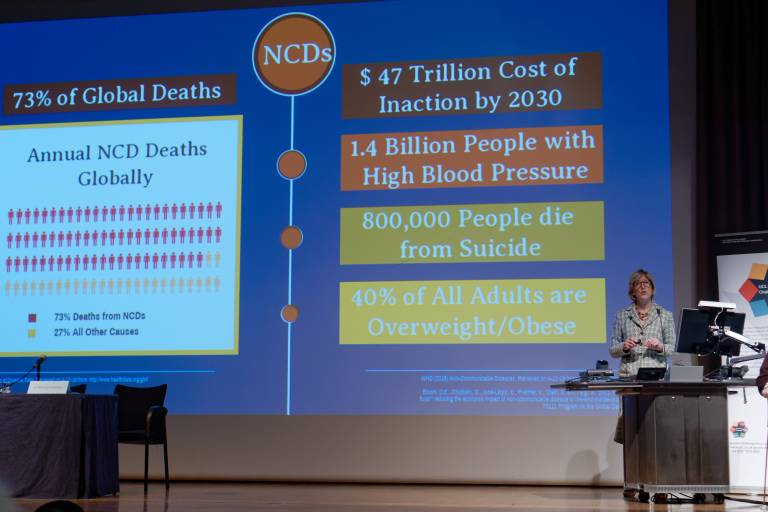
On Monday 29 April UCL’s Provost, Professor Michael Arthur, and Professor Ibrahim Abubakar (Director, UCL Institute for Global Health) welcomed almost 700 staff, students, alumni and members of the public to the 2019 UCL-Lancet Lecture in the Institute of Education’s Logan Hall, hosted by UCL Grand Challenges and the Institute for Global Health.
This year’s Speaker, Dr Rachel Nugent was introduced by Dr Richard Horton, Editor of The Lancet general medical journal. Dr Horton noted with appreciation the history of the Lancet’s partnership with the university in supporting one of UCL’s major annual public lectures, in the last ten years through the agency of UCL’s ‘utterly innovative Grand Challenges programme’. Universities are not just for generating knowledge, Dr Horton commented, but also for provoking social and political change – entirely proper goals for UCL, given its radical origins.
Dr Rachel Nugent spoke about the massive threat that non-communicable diseases (NCDs) pose to the world. Dr Nugent, Vice President for Global Non-communicable Diseases at RTI International, compared NCDs, including high blood pressure, diabetes and obesity, to a global pandemic or the growing threat from climate change. The cost of not dealing with NCDs is set to exceed $47 trillion by 2030, as NCDs will account for 73% of global deaths. Meanwhile the cost of implementing a set of high impact, cost-effective interventions to reduce the burden of NCDs around the world is estimated to be $11.2 billion.
The lecture set out the psychological barriers that are stopping the world from tackling NCDs head on. Short term political pressures are stopping us from thinking about long term problems like climate change and NCDs. It is human nature to find it difficult to imagine that the world isn’t going to continue as it has, so we are unable to fathom the long term damage that such catastrophes will have.
Dr Nugent’s lecture painted a startling picture of the damage NCDs are already causing, particularly in the world’s poorest countries. The risk of dying young of a non-communicable disease is two and a half times greater in a low income country, than it is in a high income country. People in poorer countries are financing a far greater proportion of their healthcare out of their own pockets, as government spending is not focused on NCDs. Unfortunately these conditions are receiving the least attention from external global health donors, losing out to funding for maternal health and HIV/AIDS.
Dr Nugent linked the NCDs crisis to the Sustainable Development Goals (SDGs). Despite only two of the Sustainable Development Goals directly targeting NCDs, they influence many of the other SDGs. The gains to the world’s economy by dealing with NCDs in a timely fashion are worth the investment. Dr Nugent argued that it’s time to declare non-communicable diseases as a global emergency.
Dr Ed Fottrell, Director of the UCL Centre for Global Non-communicable Diseases, also spoke at the UCL Lancet Lecture. He linked mental health to other non-communicable diseases, saying that the conditions often present simultaneously. A lack of enthusiasm from governments and other stakeholders, especially in low and middle income countries, has made it really difficult to understand the true burden of NCDs and their risk factors.
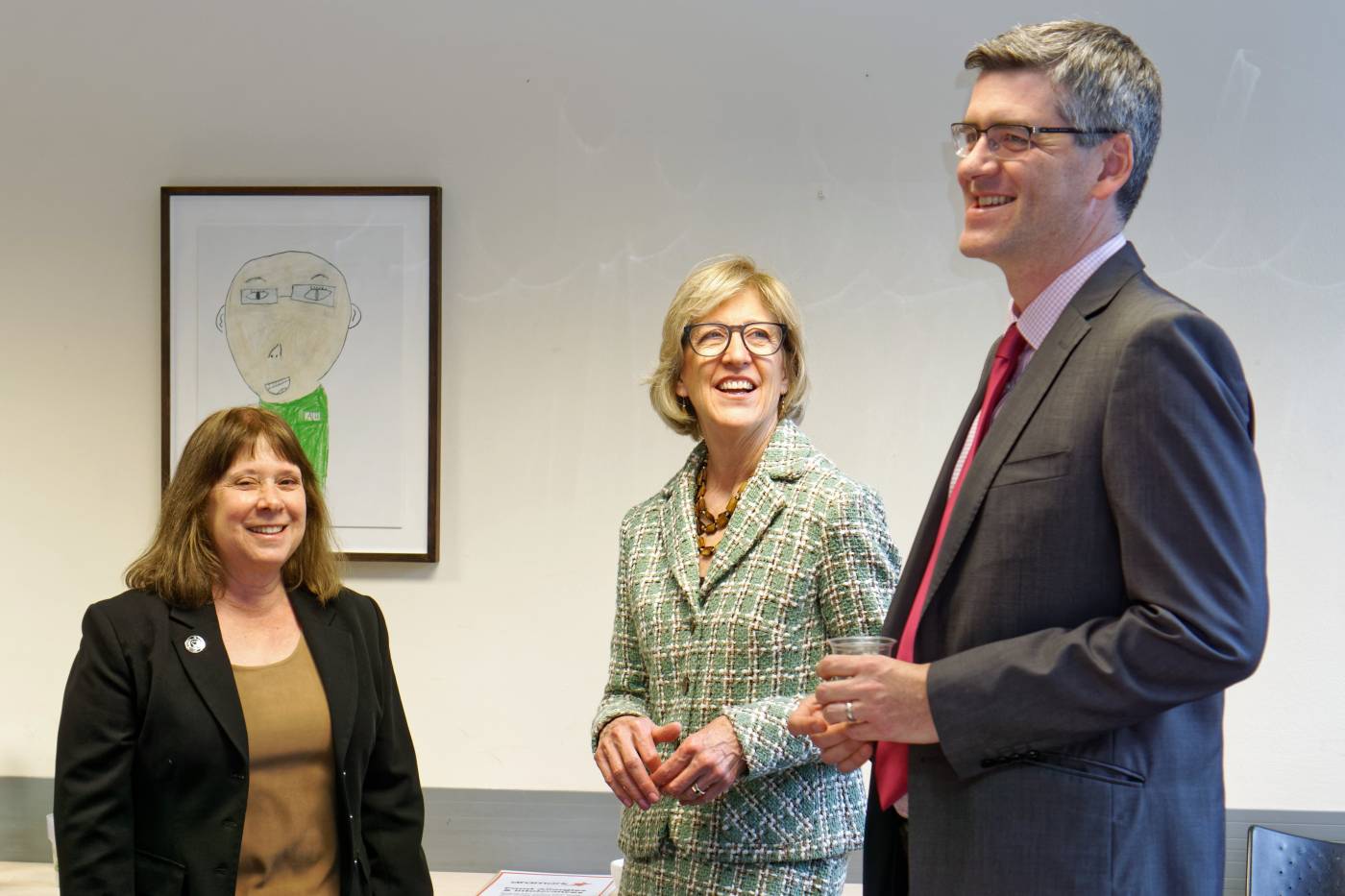


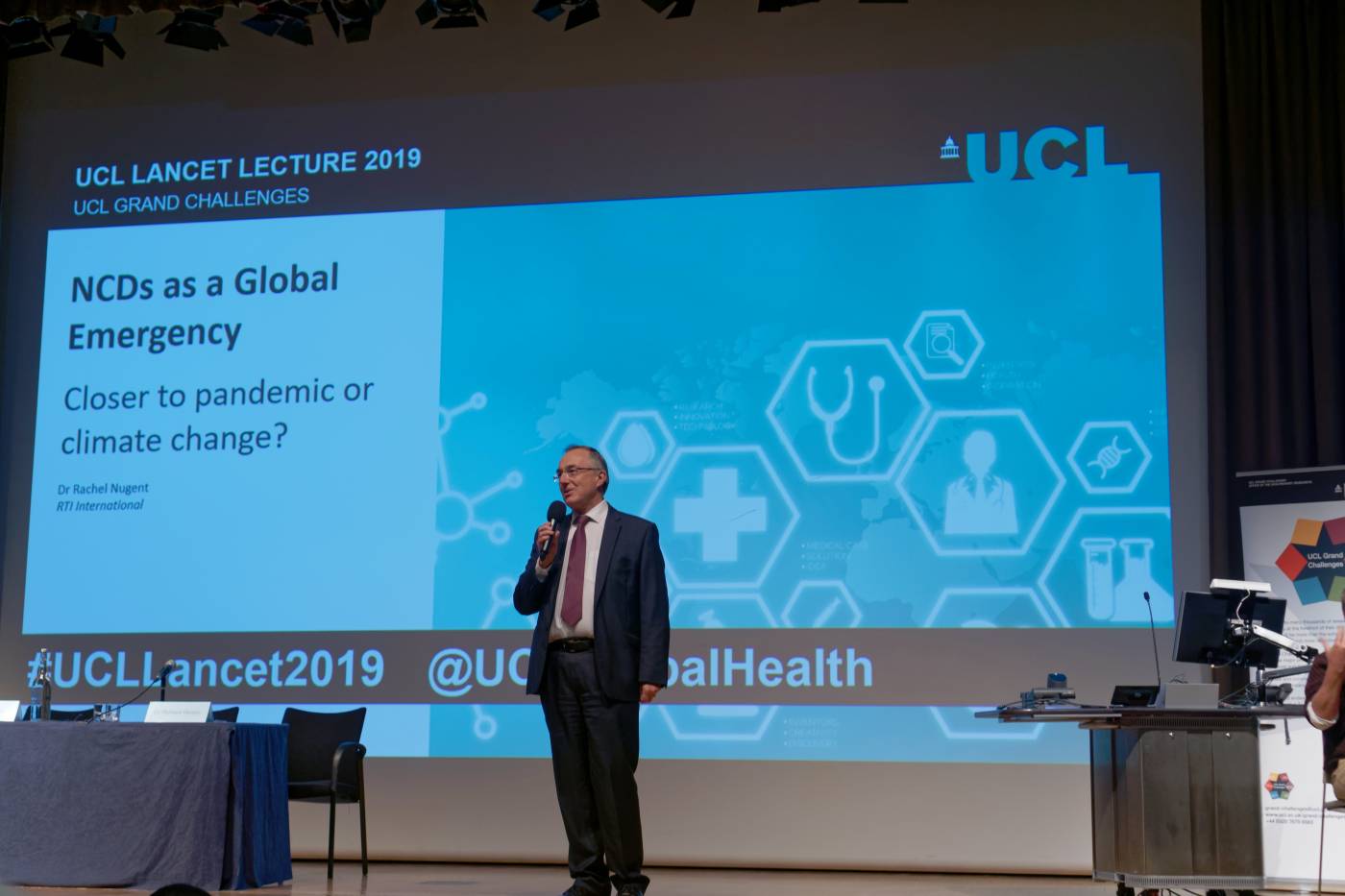
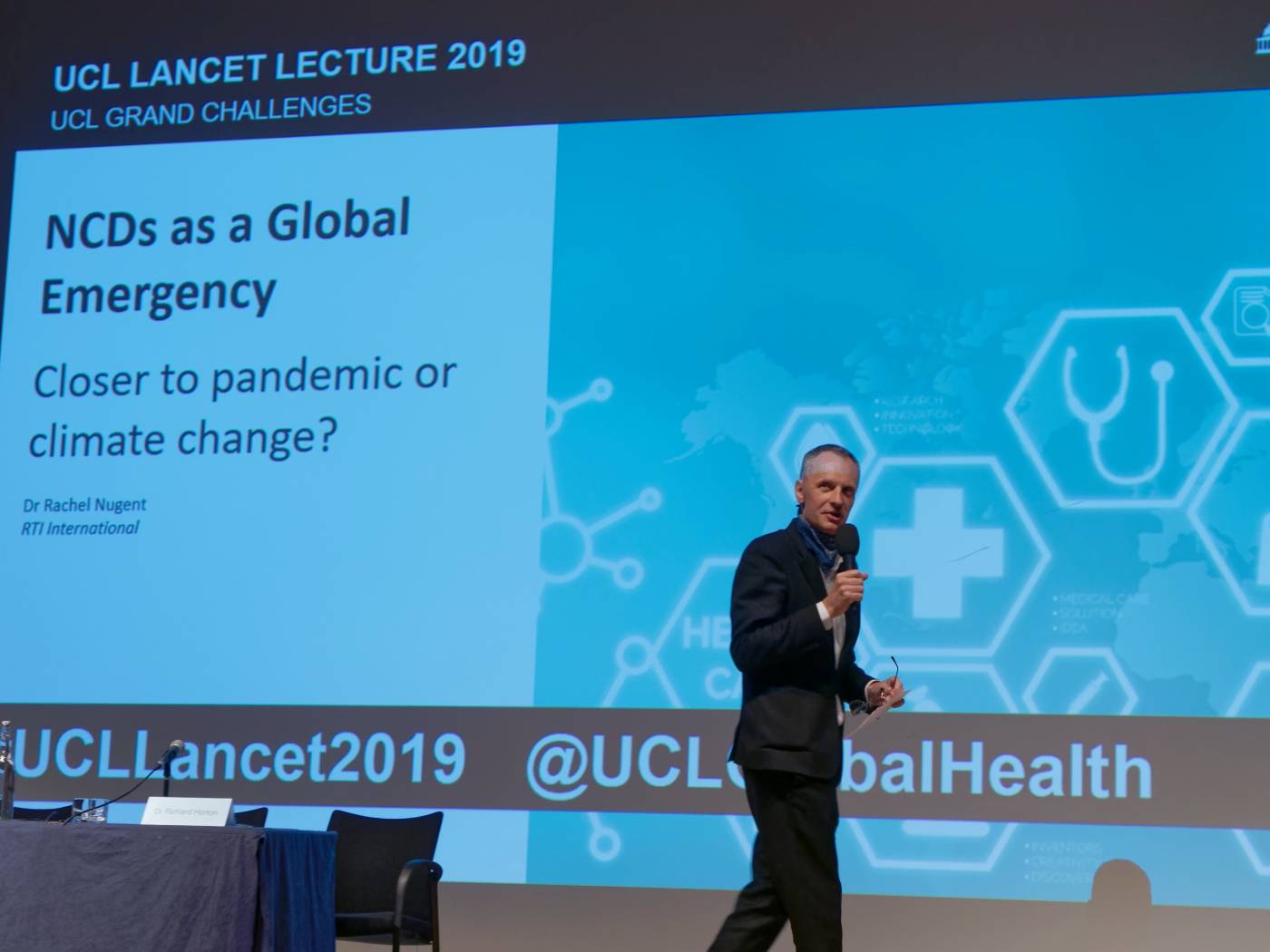

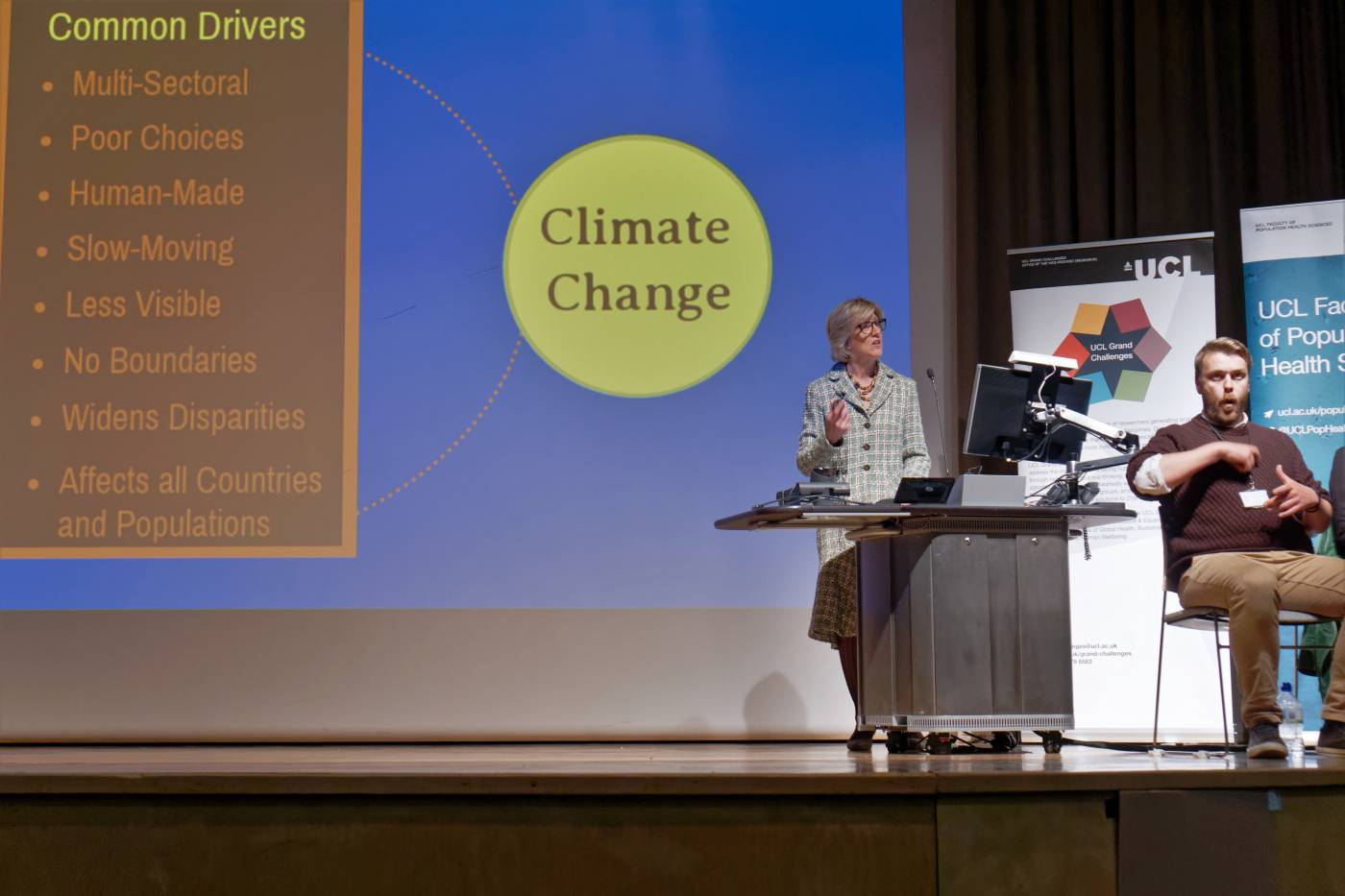
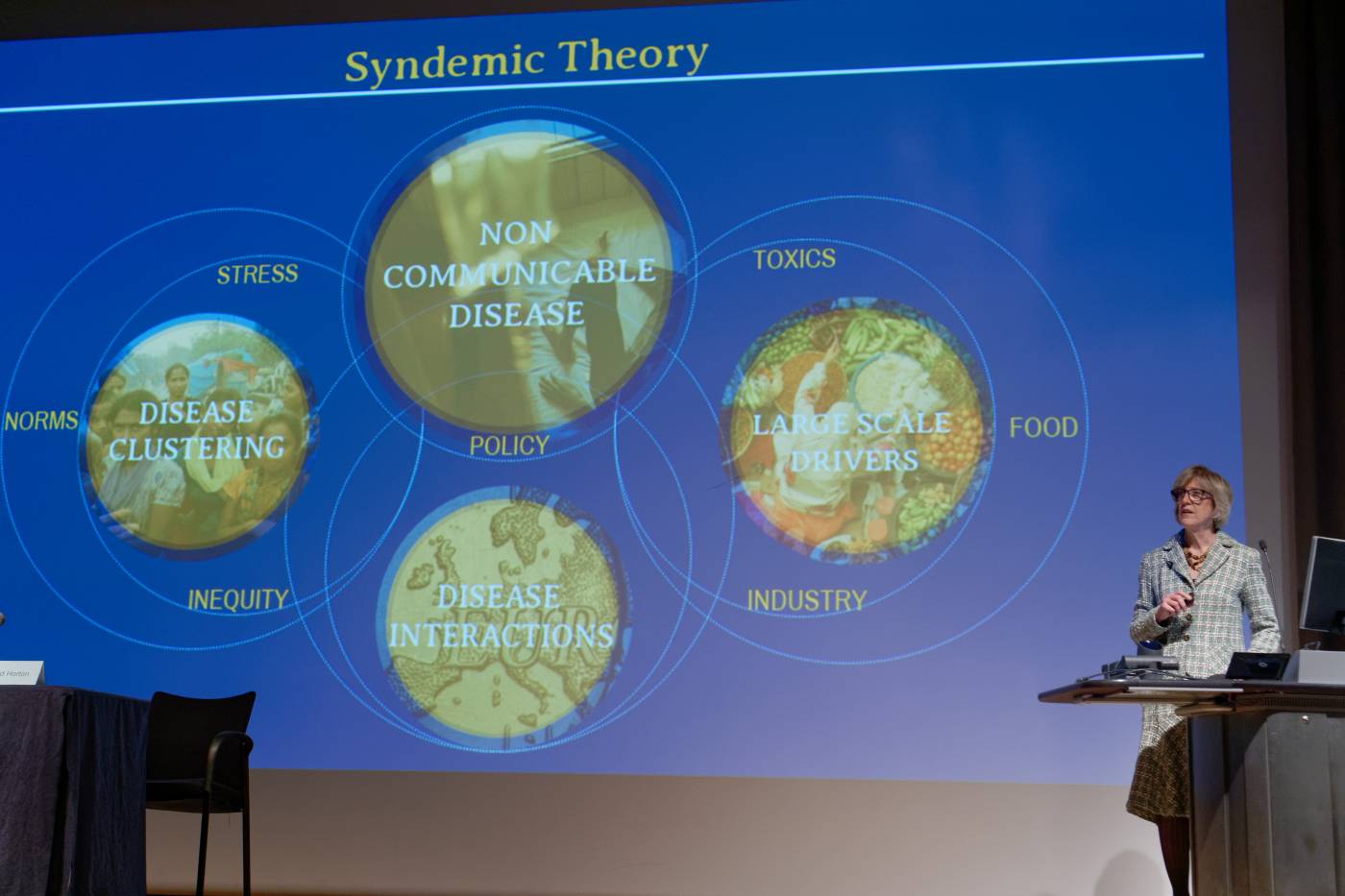
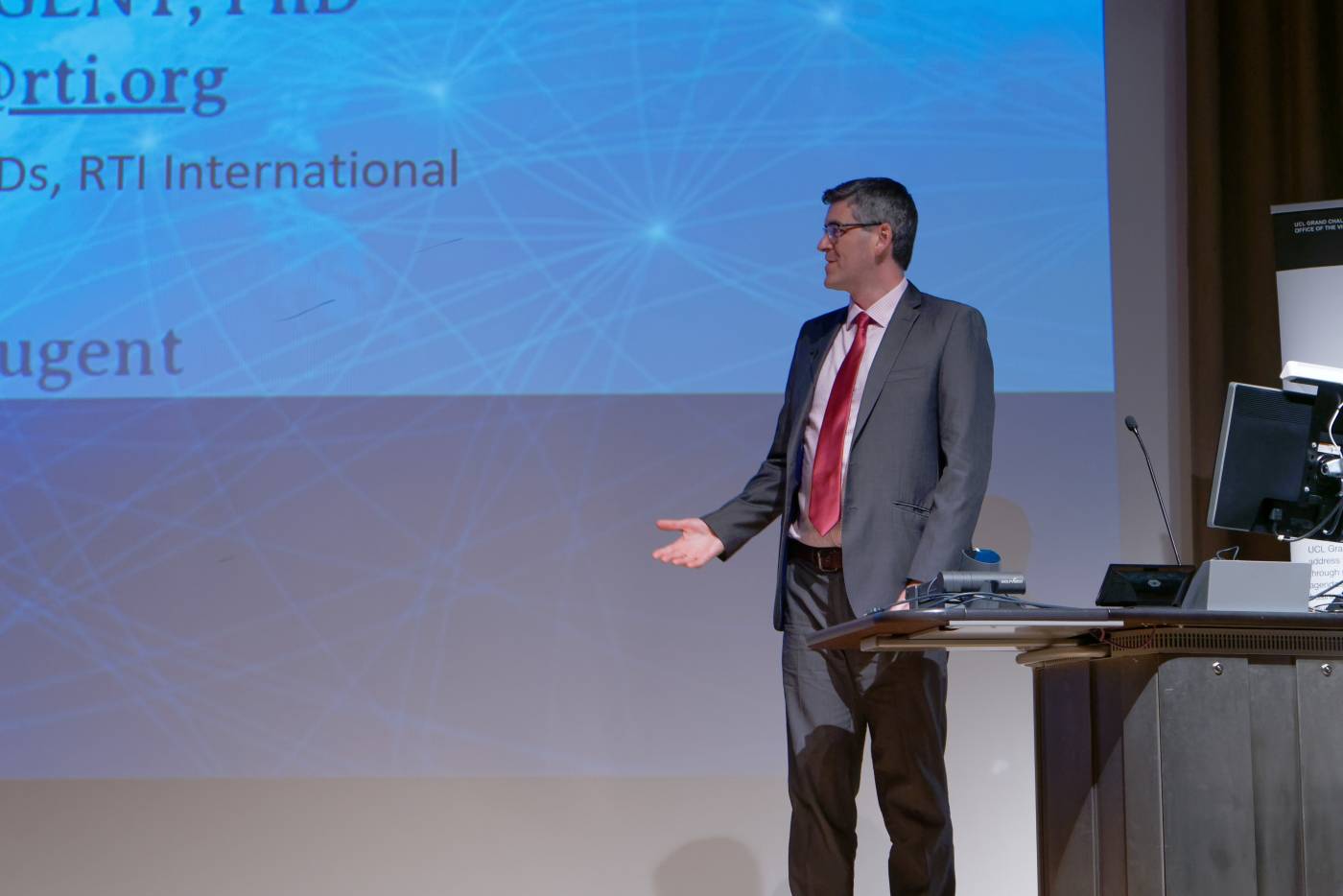
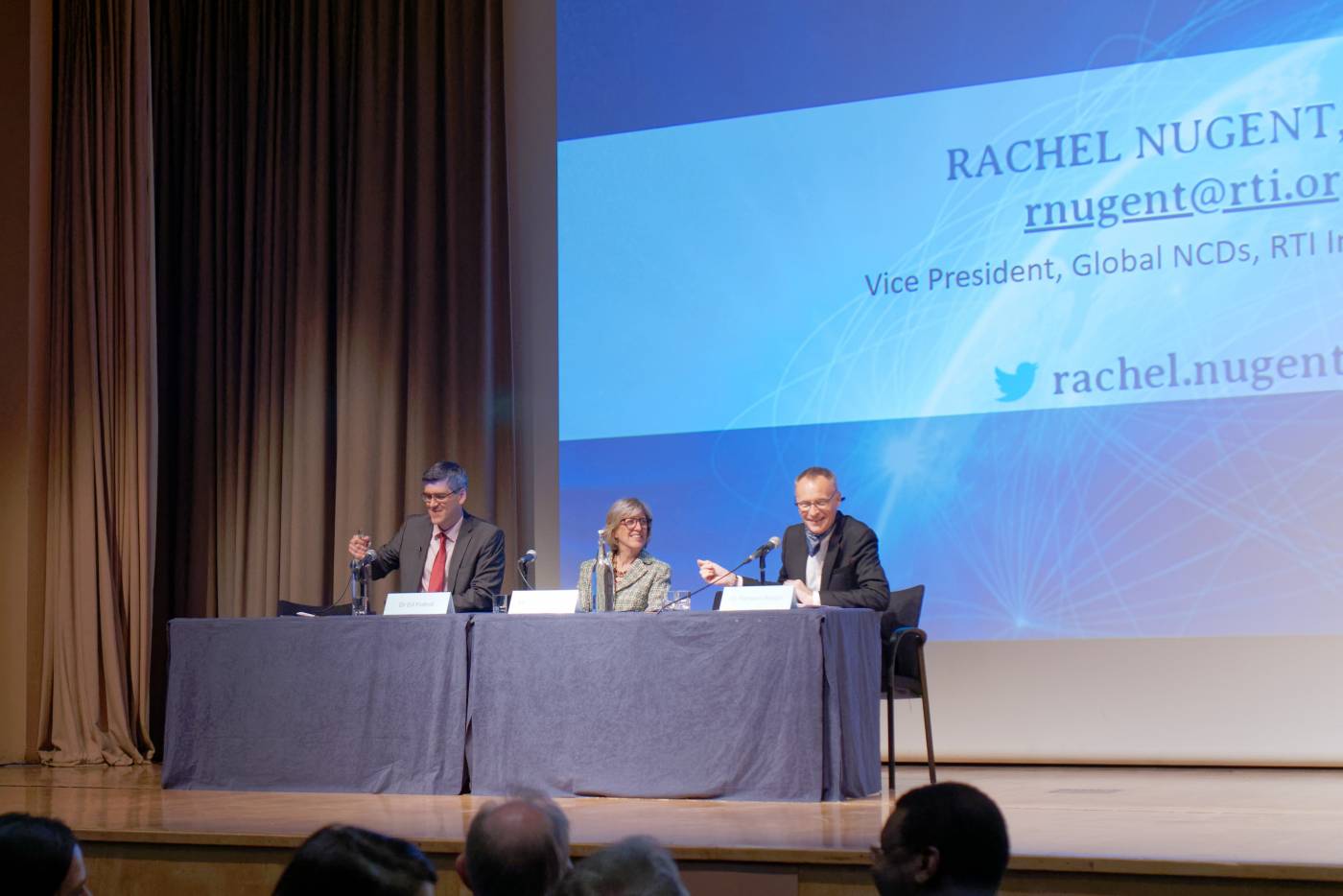

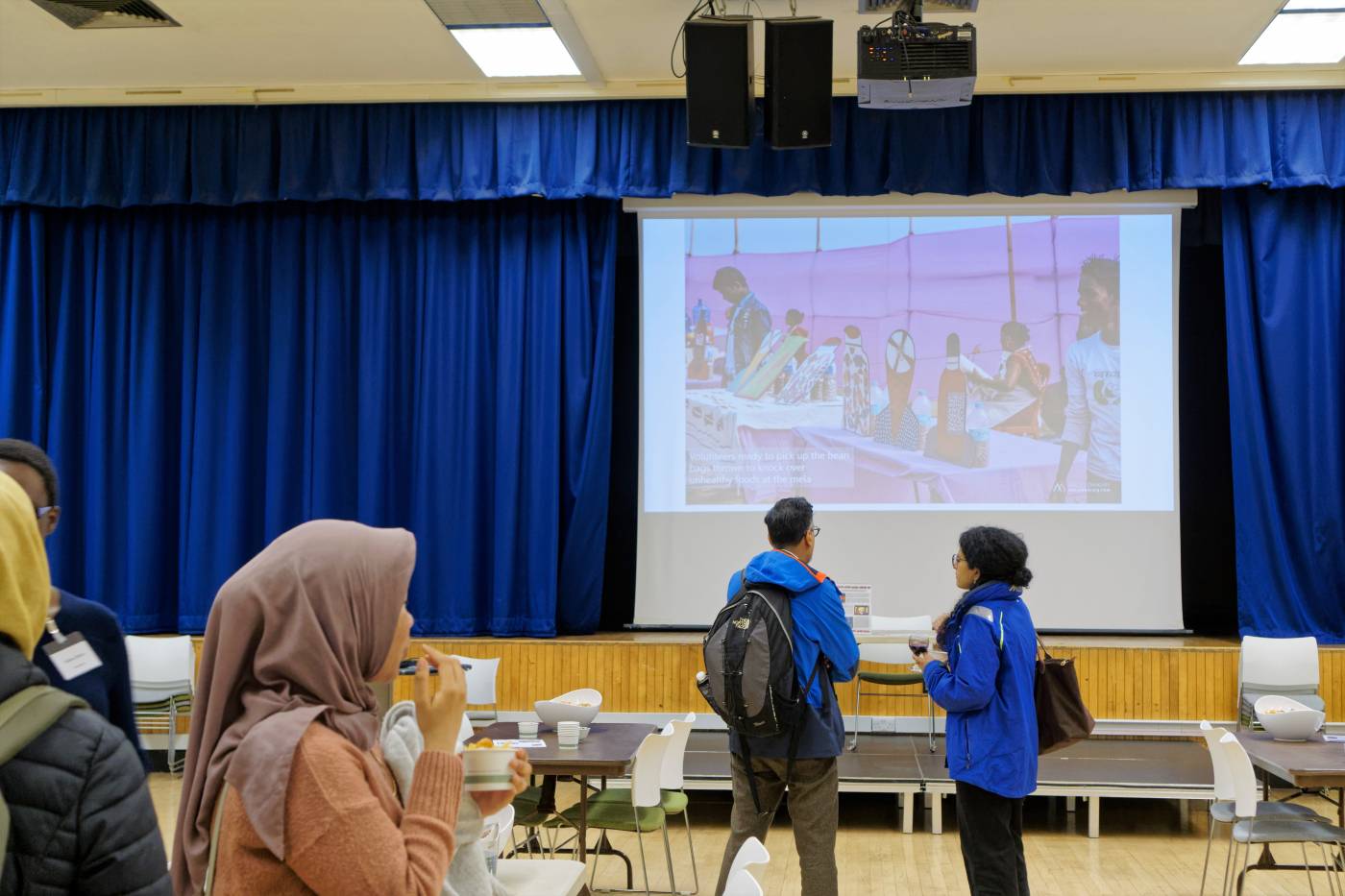
The first UCL Lancet lecture took place in 2001 and past speakers have included Christiana Figueres, former Head of UN Framework Convention on Climate Change, the Head of UNAIDS Michel Sidibé, and Indian author Arundhati Roy.
You can watch Dr Rachel Nugent’s 2019 UCL Lancet Lecture on our YouTube channel and follow the discussions on Twitter with #UCLLancet2019.
 Close
Close

